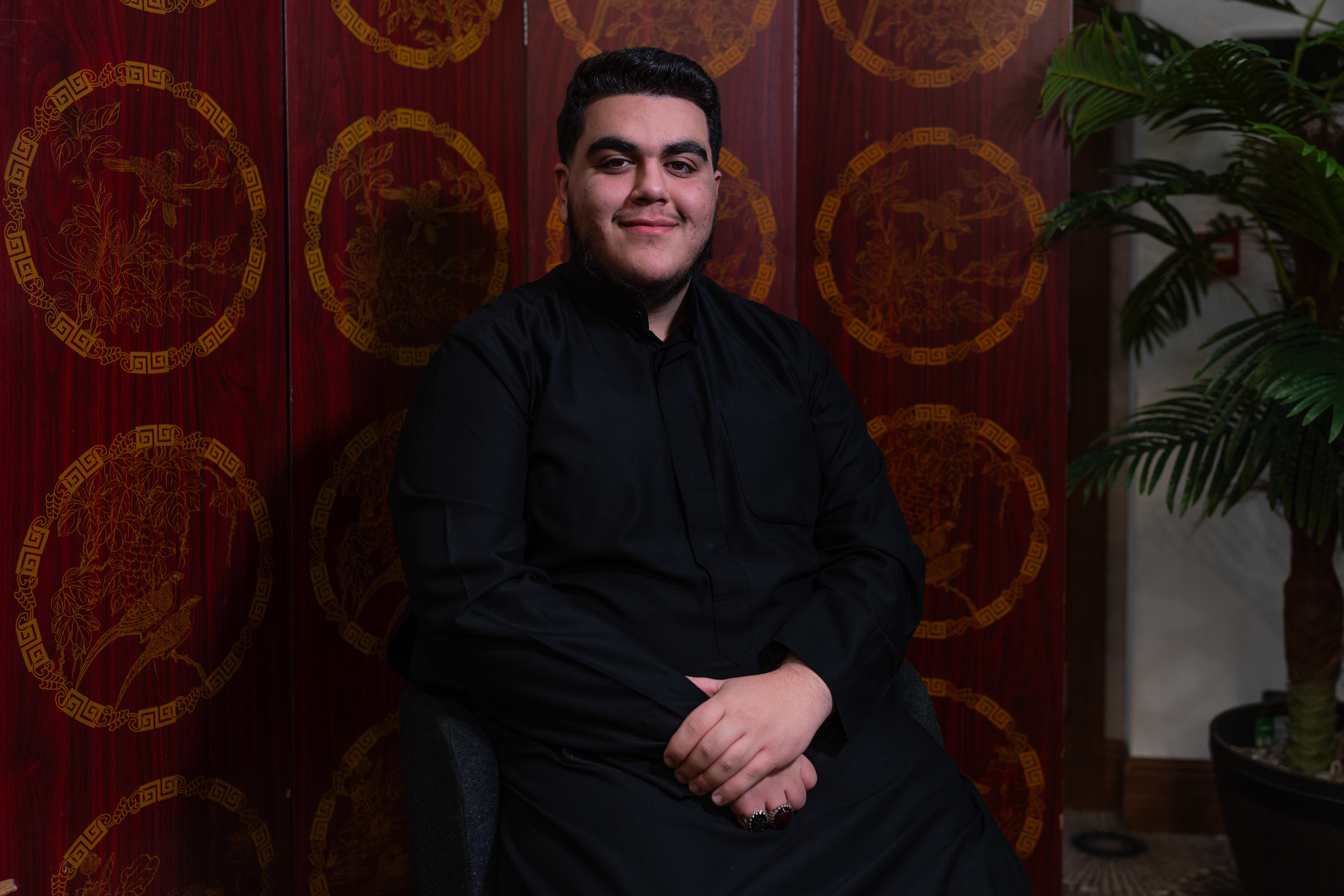A man crying over the remembrance of Lady Fatimah Al Zahra’a (the daughter of Prophet Mohammad). According to Shia teachings, it is highly recommended to cry over Ahlulbayt (The Prophet’s progeny) because it connects one with these figures emotionally and opens his heart and mind to follow their guidance.
People carrying a coffin in a symbolic reenactment of the historical event when people carried the coffin of Imam Musa Al Kadhim (the 7th Imam of Shia) across Al Basra city in Iraq
Shiekh Mustafa Masood holding the Qur’an on his head with people behind him following his lead. This is one of the rituals done on the “Night of Destiny”, which has a significant value to all Muslims because it’s the night when the Qur’an was revealed to the Prophet of Islam.
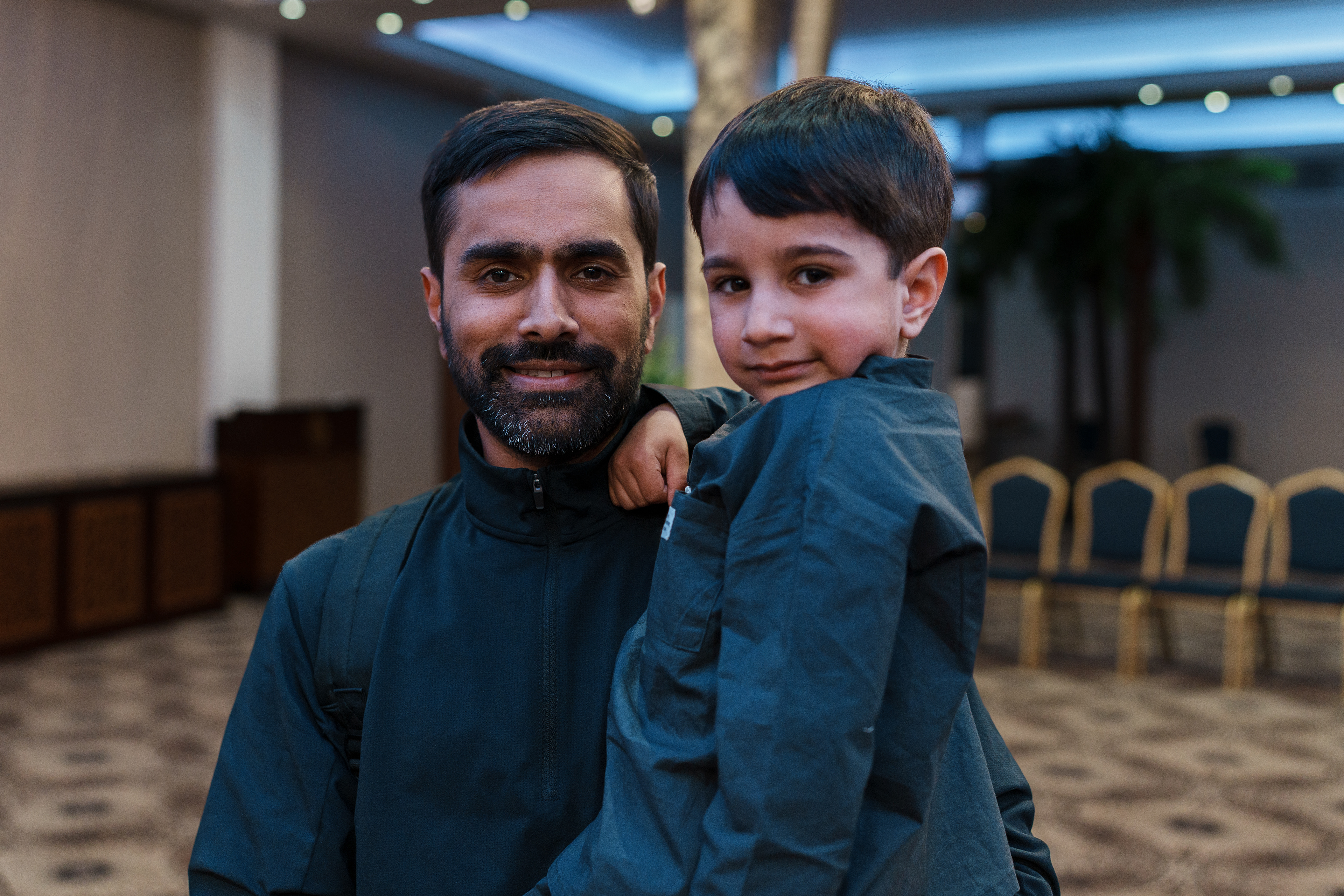
Gibran was born and raised in London. However, his parents migrated from Tanzania in the 70s looking for better opportunities in terms of education and work. He met his wife, who is from the US, in Hajj (pilgrimage). A fascinating question to me is: what is home to you? When I asked Gibran, he said that it is "of course London", where he lived his entire life. What's remarkable is that he says that "when I visited Tanzania, I didn't relate to it that much. I didn't feel I belong there. Yet, the only thing that he relates to is his Shia identity. It is essential from him to bring his son Mohamed Abbas to Hussainiyas from a young age so that he relates to this identity the same way.
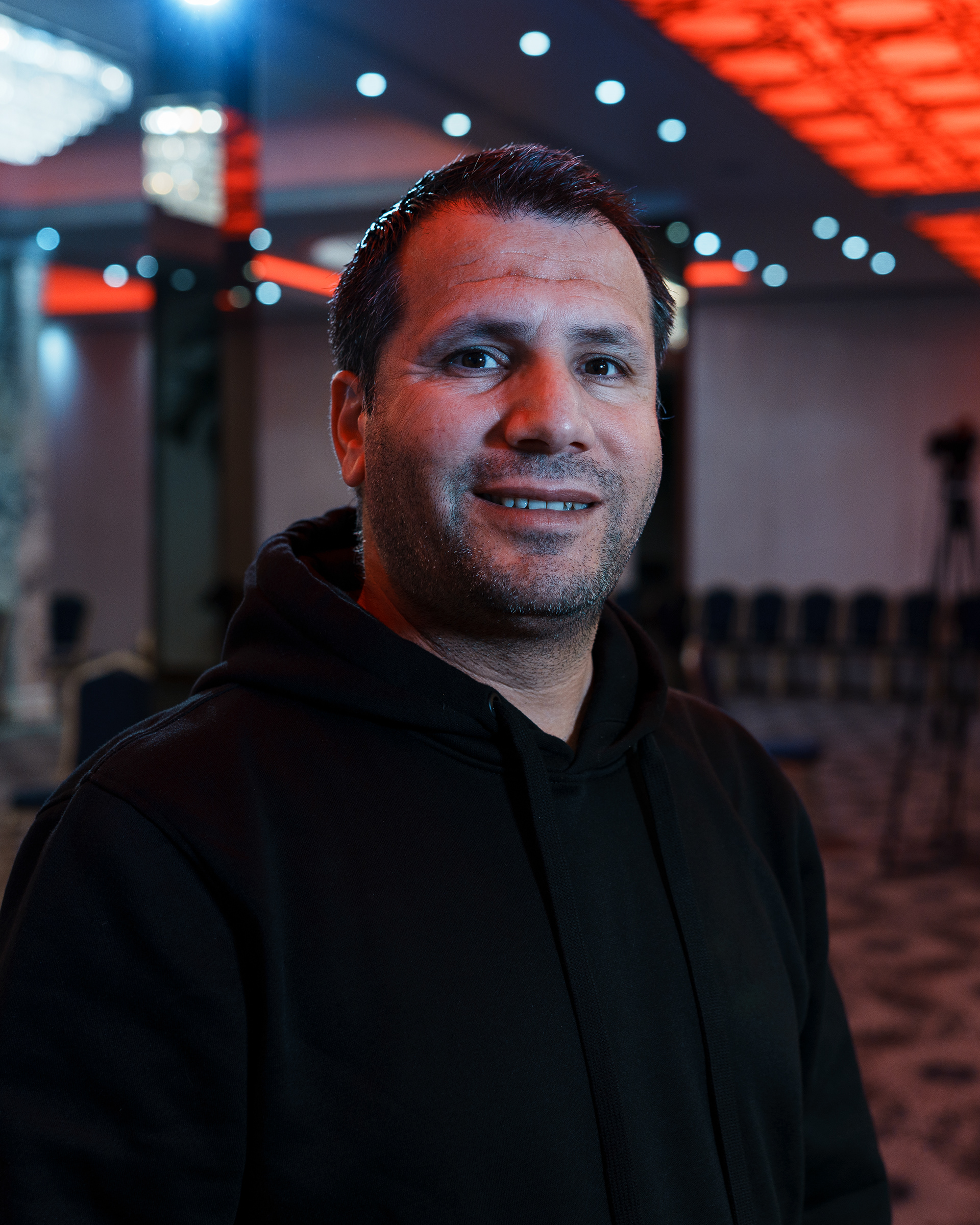
Mustafa Alsater migrated from Lebanon in 2001. He first came to London to study, then decided to settle here due to the unstable political atmosphere in Lebanon at the time. Mustafa brought his family to the UK along with a lot of other Lebanese who decided to flee at the time. "It was quite common at the time to migrate out of Lebanon to the degree that it became odd if someone didn't consider it" Mustafa said.

Shiekh Mustafa Masood, Founder and Director of Al-Harakah Al- Hussainiyah. Born in Najaf City in Iraq, 1984. His family had to flee to the UK when he was eight because of Saddam Hussien’s ruling against Shia. He studied in the UK and got a degree in biochemistry. Then he worked for 5 years in a pharmaceutical company. He realised the need in his circles for a community that combines “the 3 Ss”. He explains: “The first s is it’s like a school, where it educates you. the second s is spirituality, which connects you to Allah. And the third s is social, where it gives you a sense of belonging, a sense of unity and community”. So it can be defined as “an educational, spiritual, and social organisation”. Shiekh Mustafa has been studying religion in the Najaf seminary school since 2023; travelling between London and Najaf multiple times a year.
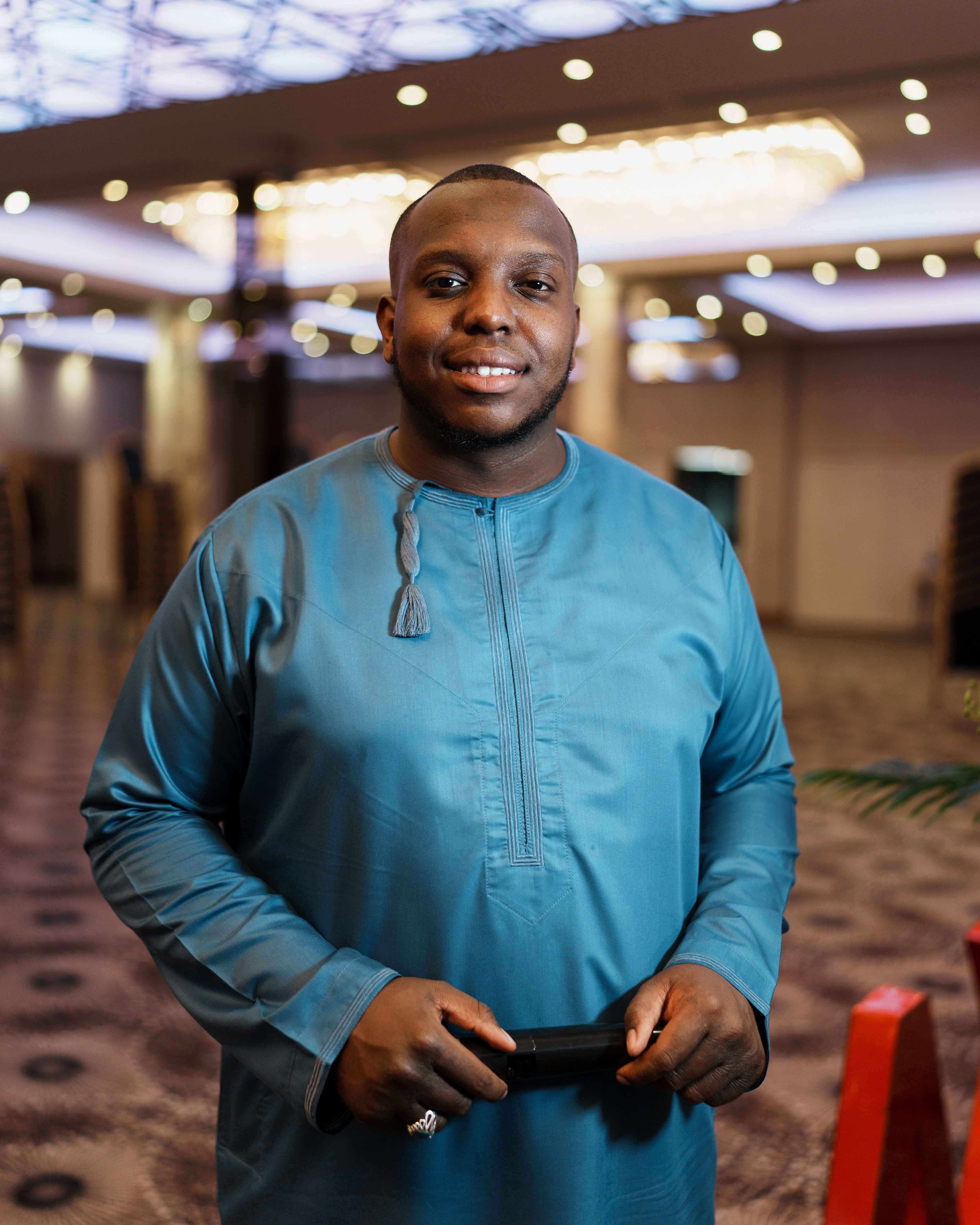
Mulla (reciter) Rashid Haider is one of the main reciters at Al- Harakah Al-Hussainiyah. He was born and raised in London. But his father migrated from Tanzania in 99 because he was looking for better opportunities for his children, particularly in pursuit of education. His father was a Sunni Muslim before he converted to Shia and then most of his family, mother grandmother and other relatives. "When he was in school, they taught him Sunni history. And when they came to the issue of Ashura and Karbala, it was mentioned like a it was a minor thing. Nothing special about it." Mulla Rashid said. He adds "that's what sparked the curiosity in my father". His father then started researching about Imam Hussain (as) and Ashura. "Once you do the research, you'll immediately see the contradictions that the Sunni narrations give about the issue of Ashura". The more he knew about Imam Hussain, the more he was convinced, until he finally made the transition to become a Shia. Rashid had a teacher who taught him how to recite the Holy Qur'an, the Latmiyat and the Jalawat for about 10 years. He also studied in his father's school that the latter established in London to teach kids about Shia. He just finished studying business management at college. He aspires to start his own business whether in the car industry because he's very enthusiastic about cars or in the real estate industry.
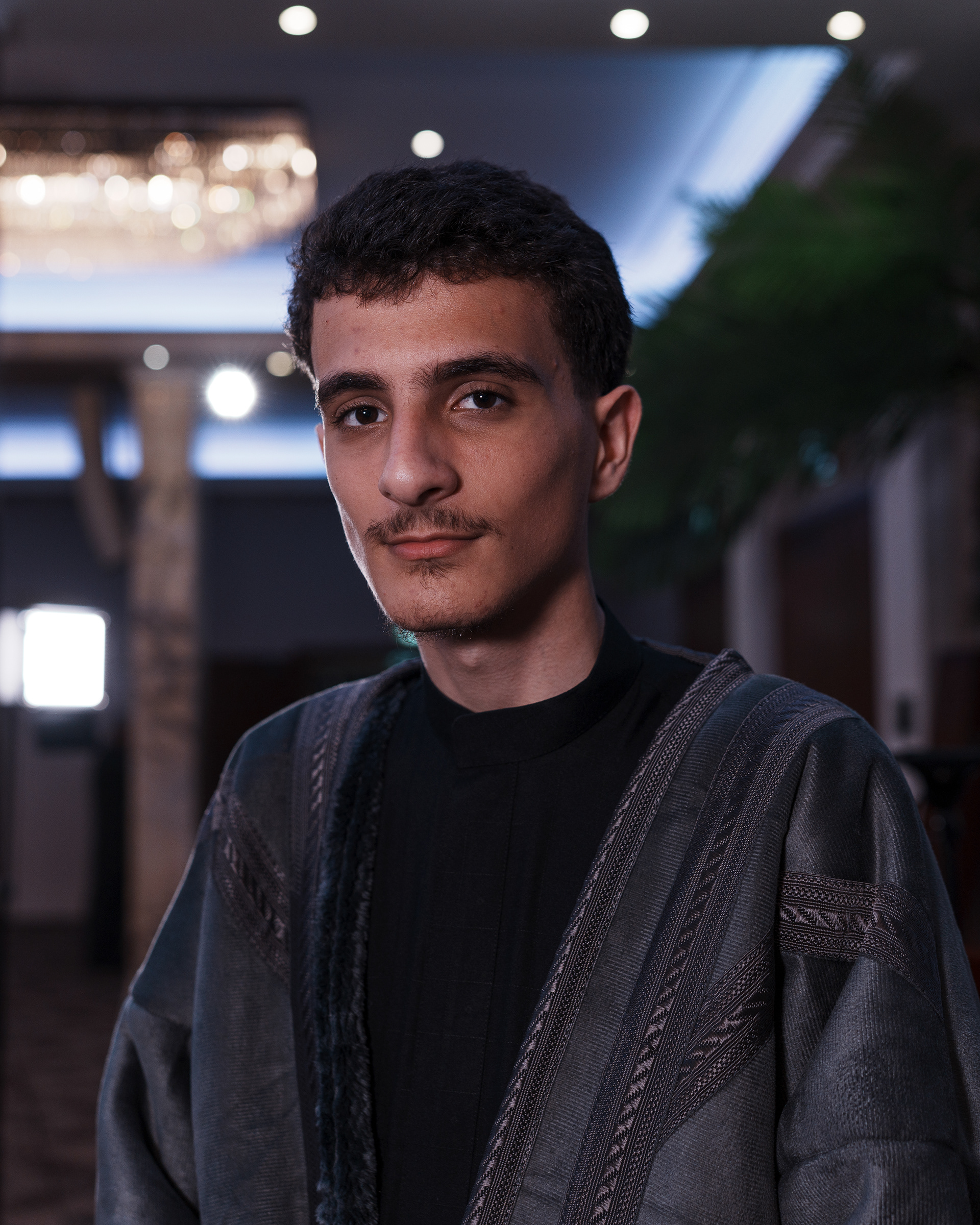
Mohammad Ali (16 years old) is the videographer and live streaming technician at Al- Harakah Al-Hussainiyah. He was born and raised in London. His father migrated from Iraq, Twaireej City, in 1989 because Saddam Hussein’s regime. He started volunteering in Al-Harakah Al- Hussainiyah since he was 13. He didn't know how to use the camera at first, then he learned gradually until he mastered the craft. "It is not a matter of just operating the camera, it is the problem solving you need to do to make the best use of the light available to you" Mohammad said. He added "Volunteering here gave me the soft skills I need that will distinguish me InshaAllah when I finish my A-levels and pursue a college degree". Mohammad aspires to become a pilot one day.
